The United Kingdom
The United Kingdom has turned into an example to the world when it comes to gambling regulations. The country passed the so-called Gambling Act of 2005 which is the main law governing the gambling industry throughout the country. Generally speaking, all forms of online and land-based gambling are legal and the country reaps a fair share of the revenue pie.
The UK Gambling Commission is the gambling regulatory body that oversees the operations of casinos, regulates the industry, and issues licenses. The watchdog also has the authority to revoke and suspend licenses as well as to levy fines to non-compliant operators. The main goal of the UK Gambling Commission is to create a safe gambling environment and protect players from developing gambling-related problems.
With regard to gambling advertising, commercials should comply with the Advertising Codes that are administered by the Advertising Standard Authority. All gambling advertisements should carry a social responsibility message. In addition to that, the inclusion of BeGambleAware official website in gambling ads is obligatory.
With regard to gambling advertising, commercials should comply with the Advertising Codes that are administered by the Advertising Standard Authority. All gambling advertisements should carry a social responsibility message. In addition to that, the inclusion of BeGambleAware official website in gambling ads is obligatory.
The country also introduced the so-called “whistle-to-whistle ban” under which gambling commercials during live sport televised events should not be broadcasted before the 9 pm watershed except for horse racing and greyhound racing coverage. It is important to mention that the ban is partial as pre-watershed TV gambling commercials are allowed during the period from 5 minutes before the event begins until 5 minutes after it ends.
The ban came after the Industry Group for Responsible Gambling (IGRG) received harsh public and political criticism over the frequency of the gambling commercials during World Cup Russia 2018. A study carried out by Enders Analysis revealed that the number of gambling ads seen by minors during the whistle-to-whistle period dropped by 97%.
According to the latest news, the UK authorities are considering implementing a ban on the use of celebrities in gambling commercials. Other requirements regarding gambling advertisements include the inclusion of 18+ signs and responsible gambling messages.
Italy
Italy is yet another country that takes pride in its well-developed gambling industry. Both online and land-based gambling activities are legal throughout the country. Operators that are interested in providing their services on the Italian market should receive a license issued by the country’s gambling regulator, and namely Agenzia delle Dogane e dei Monopoli (ADM).
Even though the licensing procedure is not the most cost-effective, a huge number of online operators are eyeing the opportunity to apply for an Italian license as the Italian gambling market is touted to be the second largest in Europe. According to statistics, Italians wagered approximately €110 billion in 2019, while the Gross Gaming Revenue reached the staggering €19.45 billion.
In 2018, it was reported that the Italian Communications Authority (AGCOM) approved a blanket ban on gambling advertisements that applies to gambling products and services advertised on the Internet, radio, and television. Under Article 9 of the so-called Dignity Decree, any form of advertising presenting promotional content relating to gambling games is prohibited. The new restriction aims at achieving a higher level of player protection.
In 2018, it was reported that the Italian Communications Authority (AGCOM) approved a blanket ban on gambling advertisements that applies to gambling products and services advertised on the Internet, radio, and television. Under Article 9 of the so-called Dignity Decree, any form of advertising presenting promotional content relating to gambling games is prohibited. The new restriction aims at achieving a higher level of player protection.
In addition to that, licensees are no longer allowed to pay for boosting their search rankings. Interestingly enough, the ban came into effect at the same time when the Italian government introduced higher gambling taxes.
Belgium
Online gambling in Belgium has been legal since 2011 after the Belgium Gambling Commission, also known as Kansspelcommissie, implemented amendments to the country’s gambling law. Under the new law, operators that are interested in providing online gambling services to Belgium players need to hold a license by the country’s gambling regulator and partner with a land-based casino. Interestingly enough, the Belgium Gambling Commission was established in 1999, when the country regulated its gambling market.
In 2019, Belgium authorities approved a series of amendments in an attempt to fight gambling addictions and better protect vulnerable players. Under the recently introduced amendments, Belgium players are no longer allowed to use their credit cards to place bets. In addition to that, virtual sports betting is removed from the list of allowed gambling activities.
The casino bonuses are limited to €275 and operators can advertise their promotions only on their websites. Gambling advertising is prohibited during the coverage of live sports events, on sports equipment, before 8 pm, and 15 minutes before and after the programs for kids. What is more, all gambling commercials should carry a responsible gambling message and only one gambling commercial is allowed during an advertising block. Operators are also not allowed to use celebrities and athletes to promote their sites. The advertising ban is included in the Royal Decree of Oct. 25, 2018 on the Operation of Games of Chance and Betting that came into effect in June 2019.
The Netherlands
For years, Holland Casino (a state-run company) had a legal monopoly on all gambling activities in the Netherlands. No foreign online casino operator was allowed to offer gambling services to Dutch players. The main gambling legislation is the Dutch Gambling Act of 1964 and since 2012, the Netherlands Gambling Authority, also known as Kansspelautoriteit (KSA), is responsible for issuing licenses, monitoring, and enforcing compliance.
But the constantly increasing demand for online gambling services made Dutch authorities review their gambling laws and consider liberalizing the online gambling industry. In 2019, it was announced that the Dutch government approved the Bill on Remote Gambling and operators will be allowed to apply for a Dutch license from 1 March 2021. This will put an end to the state monopoly on gambling and increase competition between operators.
In March 2020, the Dutch Minister of Justice submitted the Remote Gambling Decree that outlines the conditions which operators need to satisfy to be eligible to receive a Dutch license. The liberalization of the Dutch gambling market raised concerns about problem gambling. To prevent Dutch residents from gambling addictions, the government introduced a partial ban on gambling advertising.
Under the Dutch Advertising Code and the Dutch Gaming Act, commercials promoting gambling activities should not be broadcasted between 6 am and 9 pm. Gambling commercials during sporting contests are also prohibited. Remote gambling operators are also not allowed to use professional athletes or other role models under the age of 25 for promoting gambling services.
Spain
Spain took a liberal approach toward gambling after Franco’s death in 1975. The country legalized the provision of gambling services in 1977 and currently, it enjoys a healthy and flourishing gambling industry. In 2011, Spanish authorities approved the so-called Spanish Gambling Act that regulates both online and offline gambling operations.
Interested operators that would like to operate on Spanish soil are required to obtain a license from the country’s National Gambling Commission. Unfortunately, Spanish players need to declare their winnings generated from gambling activities and pay taxes on them.
In November 2020, media agencies announced that Spain’s Council of Ministers passed the Royal Decree on gambling advertising that limits the promotion of gambling products. According to the recently approved regulations, online operators are allowed to promote their services only during a four-hour window, starting from 1 am to 5 am. What is more, gambling sponsorship is not allowed and advertising via social media networks is allowed only if the user follows the operator on social media.
The decree also sets in place restrictions regarding the bonuses operators are allowed to offer. The tough measures aim at protecting minors and vulnerable individuals from gambling advertising exposure. It is important to mention that the gambling advertising ban does not apply to the state lotteries Organización Nacional de Ciegos Españoles (ONCE) and Sociedad Estatal Loterías y Apuestas del Estado (SELAE).
The Czech Republic
For years, gambling has been permitted in the Czech Republic. The only restrictions in place were aimed at limiting the number of land-based casinos throughout the country. The gambling laws in Poland were introduced in the 1990s and the country did little to change them over the years.
Unfortunately, the country’s ancient gambling laws did not adequately respond to the quick development of the online gambling market, which resulted in unlicensed online casino operators offering their services to Polish players without being penalized.
In 2017, the country implemented drastic changes to its gambling laws, allowing offshore casino operators to offer their gambling products to Polish players provided that they hold a license issued by the Czech Ministry of Finance (the only Polish institution allowed to grant licensees to offshore operators).
It is important to explain that the gambling industry in Poland is regulated on a state level, but the individual municipalities have the authority to decide whether to allow a given gambling activity or not. In September 2020, it was reported that the Council approved a decree banning all gambling machines in Prague from 2024.
When it comes to gambling advertising, the Law on the Regulation of Advertising and the Law on Gambling outline the restrictions on gambling advertising. Gambling advertisements should not target individuals under 18 years old and should carry a responsible gambling message. In addition to that, the content of such commercials should not associate gambling with financial success. Gambling operators are not allowed to place any gambling commercials on the outside of buildings and inside of publicly accessible buildings.
Poland
For a long, the gambling market in Poland remained unregulated. In 1992, the authorities introduced restrictions regarding the opening of casinos. Land-based casinos were allowed only in cities with populations of at least 250,000. After a scandal that unveiled a corrupt pro-gambling lobby in the government, Polish officials enacted the Gambling Law of 19 November 2009 that outlawed all forms of gambling except sports betting.
Two years later, Polish authorities approved the Gambling Act of 2011, prohibiting the provision of online gambling services except for sports betting throughout the country. Currently, the control over the gambling industry in Poland is in the hands of the Minister of Finance. In April 2017, Polish authorities approved a new law that created a state monopoly under Totalizator Sportowy for operating slot machines outside casinos.
As for now, the only online casino operator that is allowed to offer gambling services to Polish residents is the state-owned company Totalizator Sportowy, which began offering games via the Internet in December 2018. Poland is one of the European countries with the most restrictive gambling laws. Article 39 of the Polish Gaming Act outlines the conditions for promoting gambling services.
According to this piece of legislation, only licensed operators can advertise their gambling products. The content of the commercials should not make any associations between gambling and financial success, mental, or physical abilities.
Every day people are bombarded with commercials. Some of them seem to stick to our minds, while others are truly boring. Advertising is a complex form of communication with the target audience on a psychological level. It is the art of influencing humans’ behavior, encouraging them to make a given decision. Some people are more susceptible to manipulative marketing than others.
The appearance of online casinos on the scene led to the growth of gambling advertising. Since online businesses do not have actual venues, their success is driven by marketing strategies. Online operators rely heavily on advertising to maintain their market share and attract the attention of players. Over the last 15 years, the online gambling market has grown exponentially, which led to an increase in gambling advertising spend.
Nowadays, there are multiple advertising channels, including print media, radio, TV, social media, direct online marketing, sponsorship, and affiliate marketing. In 2018, a study carried out by GambleAware (an organization dedicated to tackling gambling-related problems) unveiled that online advertising makes up for the biggest chunk of marketing spend by gambling companies.
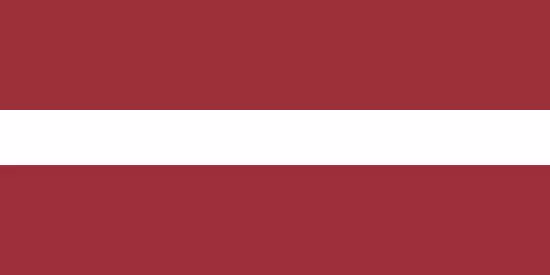 Latvia
Latvia Moldova
Moldova Albania
Albania Kosovo
Kosovo The United Kingdom
The United Kingdom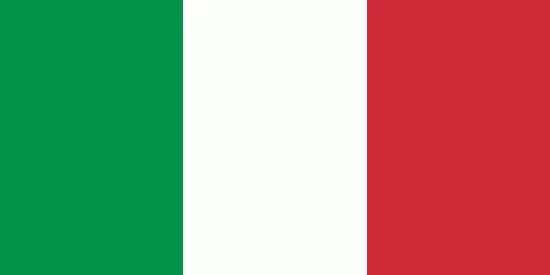 Italy
Italy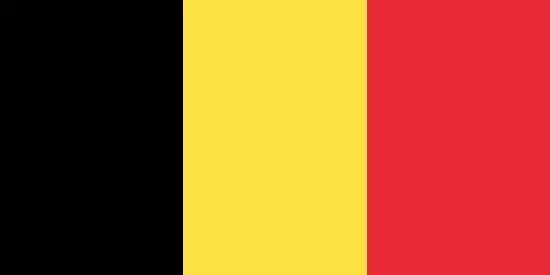 Belgium
Belgium The Netherlands
The Netherlands Spain
Spain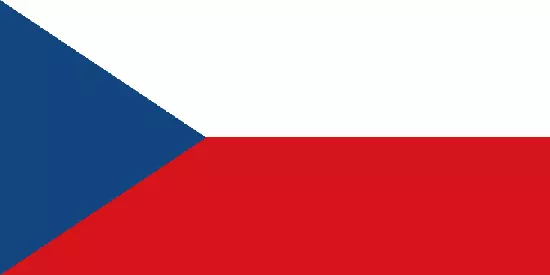 The Czech Republic
The Czech Republic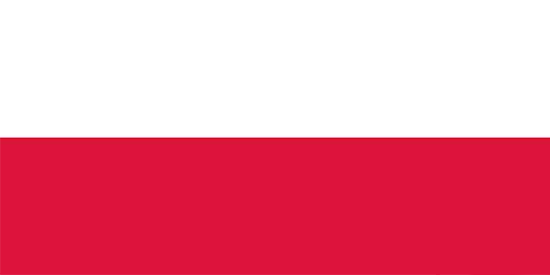 Poland
Poland